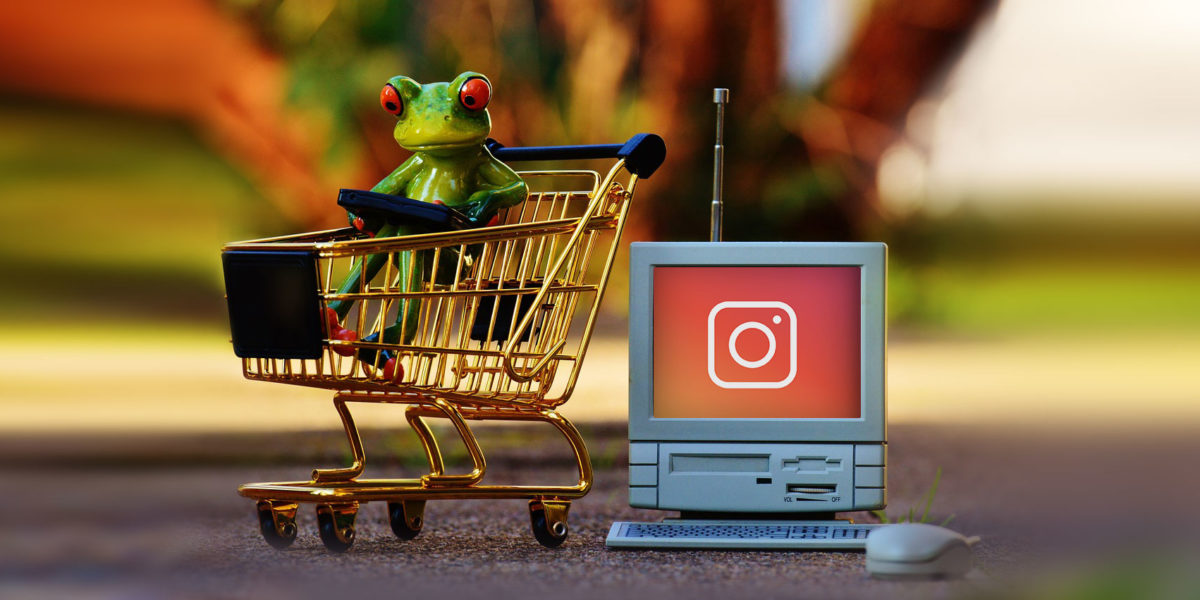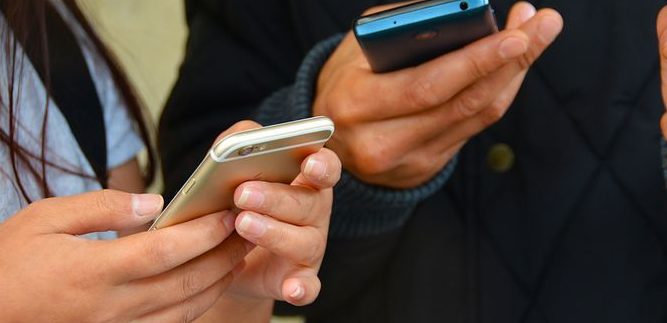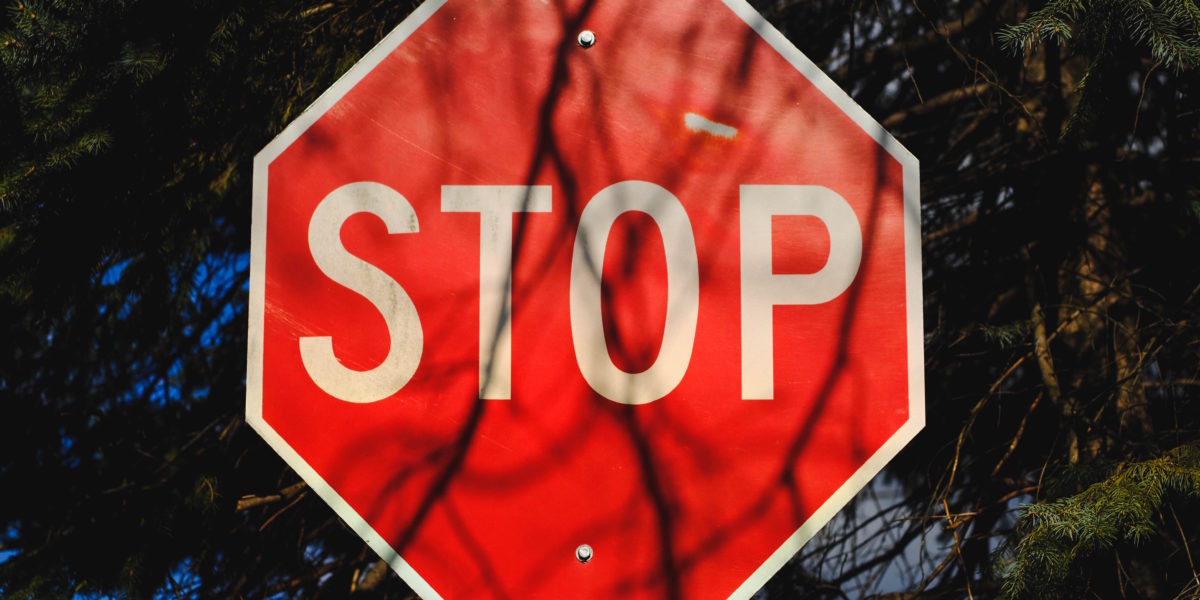Social listening has become another one of those buzzwords marketers love to overuse. Sandra Chung from Mention joins the podcast to help distill the topic into something that makes sense for every listener, whether you’re just getting into marketing, or you’ve been at it for years. Sandra also confirms that Facebook ain’t goin’ nowhere!
Links:
Sandra: So hi, everyone. I’m Sandra, Head of Content at Mention. And I’m originally from Vancouver, Canada. So I’m Canadian. And I’ve been in Paris and in Mention … well, I’ve been in Paris for about three years, and before that, I was … I come from a copywriting and marketing background. I was working at Hootsuite on the social media team for … actually, first I started on the educational team, which, at the time, was known as Hootsuite University. So there, I was running the content and community, and then soon after, I switched to a role on the social media marketing team, where I was part of the team that was running all of the paid social activities for Hootsuite.
Sandra: So I’ve always been around the social listening and communications industry. And yeah, so I’ve been at Mention for about eight months now. And yeah, we area brand monitoring and social listening tool. We are based in Paris, though we also have offices in New York. And we work with clients that range from agencies like McCann to Ogilvy to bigger brands like Pinterest. And yeah, so we … currently, our topic for today, we’ll be talking about social listening.
Nick: Awesome. Thanks for joining us today.
Nick: This word you keep using, social listening, I think sometimes these words turn into buzzwords, or people use them in the wrong context. So can you kind of distill that into something that makes sense for every listener, whether they’re just getting into marketing, or they’ve been doing it for years?
Sandra: Sure thing. So social listening, in a nutshell, is basically just tracking what people are saying about you, your brand, your product, topics that are relevant to you across social media channels, like Facebook, Twitter, Instagram, LinkedIn. And basically getting insights from it that you can use. If you extend the listening to blogs, forums, and review sites, that is more known as a wider topic that we refer to here at Mention as media monitoring or brand monitoring.
Sandra: So for me, every brand should be listening to conversations around you proactively, not just when there is a social media crisis occurs or when something bad or negative is being said. But the problem is that there’s a lot being said, and you cannot keep up with everything that’s being said about you. So yeah, so that’s why we create … that’s why Mention is created. Because every brand can use a little bit of help with social listening.
Nick: I think that’s a good point. You mentioned that often people don’t pay attention to it until it’s a problem, or they go into damage control mode. We have found that with some clients in the past, that they don’t think about it until someone posts a comment that upsets them, or it’s a negative review of some sort. So while the platform monitors those things, does it also supply, or do you supply, some form of guidance for brands to not control that, but kind of mitigate some of those things that could come up as far as how they would go about dealing with them?
Sandra: Yeah, so we have a lot of resources we create for our content library, because we not only want to be a tool, but we also want to be a point of resources for not just our customers and clients, but also marketers in general. We like to provide guidance for them. So yeah, we have webinars, we have a lot of blog posts and lots of different types of content that they can consult to consider best practices when they’re just starting with social listening, what they should be tracking, what they should be looking out for, and how to better use those insights to make business decisions.
Nick: Now, would you call yourself a SaaS, a Software as a Service?
Sandra: Yes, I would.
Nick: Okay. You just mentioned a lot of probably what you’re doing when it comes from a content standpoint isn’t directly talking about the software. Is that correct? Like, you’re talking about-
Sandra: Correct.
Nick: -the subject matter around it. Do you think it’s common for brands, businesses, whether they’re an agency or in the software space, to find it hard to justify creating or devoting the amount of time to that content when it doesn’t directly correlate to sales, like one-for-one?
Sandra: Definitely. And that’s a conversation we have very often here. So content marketing is not a short-term solution. It is an investment. And it’s something that you have to continuously invest in. But I think especially in the B2B, SaaS sphere, you have to really provide a soft way of selling. It is difficult to create all this content that is not directly related to the sale or to getting people to buy our tool immediately. But it’s a continuous effort that B2B content marketers have to do.
Nick: If there was one piece of advice you could give to someone, let’s say it’s a marketing director in a smaller organization who’s trying to convince the CEO or CFO to devote or allocate more funds to this kind of marketing effort, what do you think something they can use to be more convincing?
Sandra: That’s funny because I am currently just … I was just writing a blog post about how … five reasons you should convince your boss to invest in a monitoring tool. Whether you work in an agency or in-house, you always need to demonstrate your campaign ROI to stakeholders. Whatever types of campaigns you do, you need to do that. So it’s … in a perfect world, you know, these campaign and analytic reports, they would just create themselves. And the next best thing is to just have a tool that can do that for you. So it really saves you time, not having to compile an analytics from, you know, six different sources. And with a tool, you can just set it and forget it.
Nick: Being that Facebook is pretty much, when you talk about social platforms, is the big one because it owns Instagram as well, how much of an effect does it have on your business, your brand, when they make drastic changes with their algorithm or policies?
Sandra: Oh, a lot. So, yeah. So we’re constantly trying to find ways around it. But yeah, so when they change their algorithms or they make changes to access of their API, then we kind of have to change our strategy or our road map. So yeah, you have to be pretty agile when you need to use these tools. And to be a part of these platforms.
Nick: This might be getting into more of an opinion, but, I mean, people talk about Facebook going away or not being relevant any more. And it frustrates me, because they have the biggest user base. They own Instagram, and they’re buying up other brands, as well. Can you tell our audience, or assure them, that it’s not going away, and they need to just settle into the fact that it’s a monster, and they need to learn it?
Sandra: Yeah, I don’t think it’s going to go away any time soon. However, I think for some brands, you should decide if Facebook is for you. You don’t necessarily need to be on it. I think a while back there, there had been some brands and companies that just decided to get rid of their Facebook pages all together, because that’s not where they choose to invest their time. And they weren’t getting the type of reach and engagement that they were looking for. So if you have limited resources and time, and you don’t feel that you’re getting the most out of Facebook, then perhaps you should focus on another platform.
Nick: What’s that other platform? If you had to suggest an alternative outside of the typical ones, what would it be?
Sandra: Well, I would say from a B2B standpoint, I would focus on platforms that are a little bit more ignored. So perhaps like Quora or Reddit. So we’ve actually had invested a little bit more in Quora in the last year. So what we do is we search for questions around topics that relate to our brand and our tool, and we answer questions, we provide expertise on them, and I feel that it’s actually quite an engaged platform. You’ll … we always get couple thousand views per month on our answers. And yeah, I think it’s something that’s worth trying for B2Bs.
Nick: Influencer marketing. Here’s another word that’s thrown around a lot.
Sandra: Oh, yeah.
Nick: But let’s talk about the core of that. What it really is. And the reason I’m bringing this up is I don’t think it’s anything really new.
Sandra: No.
Nick: If you look back on marketing and advertising. But in the modern context, what would you say influencer marketing covers?
Sandra: Basically, it’s just finding ambassadors that are already interested in your industry and perhaps your products and services, and identifying them and reaching out to them to collaborate. And for us in … I think when people think about influencer marketing, they tend to think more about the B2C sphere. But actually, it’s quite popular in the B2B sphere, as well.
Sandra: So to give you an example, we create microsites a lot. So last year, we created one called The Influencer Marketing Stack. So this was basically a one-stop shop for all of your influencer marketing needs. So whether you’ve just heard of the term and you’re not really sure what it is, and you’re looking for resources, or you want to know what kind of platforms you should use, or which agencies you should go with, yeah. You can check out The Influencer Marketing Stack for that.
Sandra: But basically, how we were able to come up with this idea was actually we created alerts with a mention for people that were talking about influencer marketing. And then we would track them down, and then we proposed the idea, and we ended up collaborating them. So this one, we worked with Shane Barker, Later, which is a Instagram marketing tool, and Bitly, and a bunch of other influencers.
Sandra: And then we actually used influencer marketing to launch it. So how we did that was through Product Hunt. So we found … we used Mention to find people who were already talking about the Product Hunt a lot, and then we were able to track them down and reach out to them and ask them if they would hunt the product for us. And then afterward, we also found influencers using Mention who were interested in the topic, and then we were able to share with them and ask them to amplify it for us.
Nick: I’m going to give you a challenge. So what if you have a B2B client that has a somewhat boring business just from the outside perspective. Maybe they provide IT services, phone systems, things of that sort. Give us example who would be a great influencer to work with in a case like that? Maybe not a specific name, but just the type of influencer.
Sandra: Well, for IT services or drier industries, I would create keyword alerts around terms that your company produces content about. And then I would use Mention to track down who is talking about these terms. Or people who are talking about your competitors. You can definitely create alerts for that and track down people who are talking about your competitors. And if they’re talking about your competitors, chances are, they would work with you, too.
Nick: Let’s just back up a little bit to the brand awareness side.
Sandra: When it comes to brand awareness, for example, with Mention, if you wanted to measure the impact of the brand awareness campaign, you can be tracking things like how the volume of your brand mentions changed over time during the campaign period. You can find out what sources and social media channels they’re from. You can even drill down to the location and languages and find out if your brand is present, if it has a presence in a new location that you weren’t aware of.
Sandra: Yeah, so there’s really a lot that you can do.
Nick: That sounds like a pretty important part of your tool, because I think that’s probably the biggest fear for most people, is the brand awareness campaign is going to fall into the old school category of a billboard or a television commercial that you can’t track. But that’s a good point, that you’re able to track the mentions, or when people are having conversations around it to associate it back to that brand awareness campaign.
Sandra: For sure. And I think especially for you, as you are an agency providing the analytical data in results, that’s kind of like the bread and butter for you guys, isn’t it?
Nick: Yeah, absolutely. I think the reporting becomes very important for our clients. They may be only interested in certain KPIs, but we typically have to decide on what those are for that client. So we don’t spit out just a blanket report for every single client. Because often, we find they get lost in all the numbers. I think that’s also a trend, too, of people trying to impress their clients with these huge dashboards of numbers. But we try to focus on what the client actually needs. Because it’s going to inform them to make better decisions, which impact our results, as well. So I think that it’s not about … you know, we talk about vanity metrics in social, but I think that can happen on the analytic side, as well.
Sandra: Yeah, so I think every brand should be doing this, and probably a lot of them aren’t focusing on brand awareness. It could be because they think it’s really time consuming, or there isn’t a good way to automate things, or they can’t get the specific insights they’re looking for. But yeah, there’s a lot you can do to solve that.
Nick: Let’s jump back to your career at Hootsuite. You know, a lot of people use that platform. But from an insider’s view, what’s one key takeaway for you in your career that you’ve personally walked away with, working in their organization?
Sandra: What I loved about Hootsuite was the culture. It was my first taste of a real startup culture, and it was great. The people there were amazing. And I can say the same for Mention right now. So I think … I’m a creature of habit, so I keep gravitating towards the same type of culture.
Nick: I think some people in the startup world started matching that up with a ping-pong table or free beer, right?
Sandra: Yup.
Nick: We need to put that to sleep. That has nothing to do with the culture at a [inaudible 00:18:46].
Sandra: Yeah. I think, yes, when I talk about culture, it really comes down to communication and what your company values are, and how aligned everybody is with that. And yeah, I can talk about how the culture at Mention is now is where it’s very innovative, people are always challenging each other, and we’re about 50 right now. And so we’re not at a big, big size yet, but I think it’s a good size, and it really allows us to work efficiently and to, as you said, to keep a really good flow of communication between teams.
Sandra: Yeah, so things are really great here.
Nick: Yeah, I think people need to stop focusing on growth for the sake of growth. Even before we got into this conversation, you were asking some questions about our email list for The Daily Carnage, and that’s a mentality we had to get away from, was just trying to build …
Sandra: Numbers?
Nick: Numbers, this massive list. And I think that’s … you’re going to see more of that, of companies and brands coming out and being more transparent.
Nick: Well, it was great talking with you today, and I think we got a lot of insights out of this, for sure. Sandra, can you give us where people can find you, and how they can start to take a look at Mention?
Sandra: Sure. Yeah, so you can just google Mention or go to mention.com. I will also give you guys the link to things I mentioned of, such as The Influencer Marketing Stack. It’s a really cool resource site, so you should definitely check it out. Or you can also follow us everywhere on the web. On Instagram, we are Mention_app, on Twitter, we are @mention, and yeah. You can find us everywhere.
Nick: What about personally? Do you have any places that you choose to post your day-to-day process?
Sandra: Yes. So you can find my personal Twitter, it’s @sandrogynous. It’s a little hard to spell, but it’s like androgynous, but with an S, basically.
Nick: Any last words or thoughts?
Sandra: It’s funny, because at Mention … so we are actually a French company, so we have this saying that we say at the end of every standup meeting or weekly recap. It’s “Let’s do.” It doesn’t really make English sense, but that’s what we all say. It’s kind of like a cheer to the end of our meeting. So let’s do!





